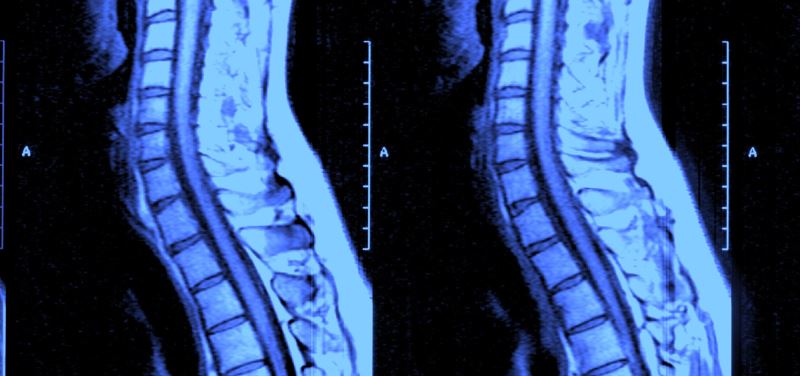The Causes & Treatment Options For Spinal Hematomas
Category: Spine | Author: Stefano Sinicropi

A spinal subdural hematoma is a rare but very serious condition that develops when an accumulation of blood mechanically compresses the spinal cord. This problem can lead to serious complications if not addressed immediately, so today we’re going to share the symptoms and risk factors for the development of spinal subdural hematomas.
Causes and Symptoms of Spinal Subdural Hematomas
A blood clot anywhere in your body is serious business, but it can be even more troublesome in the spine. Thankfully they are rather rare developments. Spinal subdural hematomas are more common in patients:
- Who suffered an acute trauma to their spine;
- Who are receiving anticoagulant or thrombolytic therapy
- With bleeding diatheses
- Who recently underwent a lumbar puncture operation
Symptoms of a spinal subdural hematoma include local or radiating back pain and abdominal tenderness. If the hematoma becomes severe, you may notice muscle weakness, inhibited gait and even lower extremity paralysis. Symptoms can develop and change within minutes or within a couple of hours.
Spinal Subdural Hematoma Diagnosis
A diagnosis of a spinal subdural hematoma will be confirmed via an MRI, or if not immediately available, a CT myelography. Time is critical when it comes to treating spinal hematomas, so if you are experiencing any of the above symptoms, get to a clinic right away so imaging tests can be performed.
If a spinal subdural hematoma is found on the imaging test, the patient will be prepped for an operation. There are no conservative treatment options to address the hematoma, and surgical drainage is the best option for relieving this potentially life-threatening condition.
Patients will be taken to an operating room, given anesthesia and placed on their stomach so that the surgeon can access the hematoma site. Using a guided device, the surgeon will insert a special needle to drain the site. Depending on the cause of the hematoma, you may receive other agents to normalize your blood’s ability to clot. For example, patients taking anticoagulants will be given vitamin K1 and fresh frozen plasma, while patients with thrombocytopenia will receive blood platelets.
Treatment for Spinal Hematomas
Treatment success varies depending on a number of factors, but timing is really the only factor you can somewhat control. If you are experiencing lower body weakness or even partial paralysis, head into an emergency room or spinal clinic right away. The sooner you get in, the higher the likelihood of surgical success. This is a rare condition, but one that needs to be taken seriously.